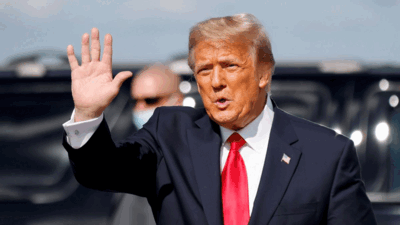
America’s scientific enterprise stands at a crossroads. Late Thursday, President Donald Trump signed an executive order granting political appointees sweeping authority over the billions of dollars in federal grants that fuel research, innovation, and emergency response. Long hailed as a largely apolitical system built on peer review and merit, the federal grant process now faces a fundamental transformation. The administration calls the change a step toward “strengthening oversight” and “streamlining agency grantmaking,” but scientists warn it risks dismantling the impartial framework that has made the United States a global leader in research and development. With the power to halt funding midstream and freeze new opportunities until new protocols are in place, the order reaches beyond laboratories to touch public health, disaster relief, and national safety, raising urgent questions about whether political priorities will now outweigh scientific merit.
From neutral stewardship to political oversight
For decades, the US federal grant system has functioned as a largely apolitical engine, funding research based on merit, peer review, and scientific promise. Now, under the order, every federal agency, from Foreign Exchange Management Act (FEMA) to the National Science Foundation (NSF) and the National Institutes of Health (NIH), must appoint officials to vet grants for alignment with “agency priorities” and “the national interest.”These officials will have the authority to halt funding at any point, even mid-project. Crucially, no new funding opportunities can be announced until agencies adopt these new protocols, effectively freezing the pipeline of federal research dollars.
Scientists warn of a chilling effect
Researchers say the implications are profound, and chilling. The Association of American Medical Colleges has already raised red flags, cautioning that delays in grant approvals could slow the development of urgently needed treatments and cures. This is not a hypothetical fear; the administration has already terminated thousands of grants, targeting research into areas such as transgender health, vaccine hesitancy, misinformation, and diversity and inclusion.
Beyond laboratories: The broader impact
The reach of this executive order extends well beyond academic research. FEMA’s emergency relief grants, Department of Justice public safety programs, and CDC public health initiatives could all be subjected to political filtration. Experts argue that embedding political considerations into such funding decisions risks diverting resources away from pressing public needs toward ideologically favoured projects.
Streamlining or stifling?
The Trump administration defends the move as an effort to “strengthen oversight” and “streamline agency grantmaking.” Supporters may see it as a necessary check to ensure taxpayer money serves national priorities. But critics counter that such language masks a dangerous erosion of independence, a recalibration of the grantmaking process from scientific merit to political expediency.
The looming legal battle
Given its reach, the order is almost certain to face legal challenges. Opponents will likely argue that it violates the established norms and statutory safeguards designed to keep research funding insulated from political pressure. Courts may be asked to decide whether the executive branch can so fundamentally alter the balance between politics and scientific inquiry.
A test of America’s research identity
At its core, the clash over this order is about the identity of American science. Will it remain an open, merit-based system, a magnet for the brightest minds in the world, or will it be reshaped into an instrument of political will? The answer may determine whether the US continues to lead the global innovation race, or whether it cedes that ground to nations where science is still allowed to chart its own course.
